The Red Thread Read online
Page 3
“Big news! Good news!” she said. She wore a pale pink Gap T-shirt and stonewashed blue jeans. “We tour orphanage this morning! Very exciting.”
“I’m not going,” Maya whispered to her mother. “You know how I feel about babies.” The word babies caught in her throat.
“Maybe it would be good for you,” her mother said.
“Stop telling me what’s good for me,” Maya said, her voice louder.
“No baby!” the guide said. “All ages!”
She opened her ridiculous green umbrella, indicating it was time to follow her.
Maya let herself get swept out of the hotel, into the bus. “I’m not going in,” she told her mother.
Yet she did. That was something Maya could never explain. She spent a good deal of her time avoiding babies, making up excuses for missing her colleagues’ baby showers and christenings. But that hot August morning in Guanzhou, Maya followed that green umbrella into an orphanage and her life changed. All around her, everywhere she looked, she saw children. Babies and toddlers and preschoolers, even teenagers. Children everywhere. The head of the orphanage gave an uplifting talk about the children, and then they stood together and sang a patriotic song. The smallest ones ran forward and handed everyone a chrysanthemum. Then they filed out, their backs straight as rulers.
The tour guide opened her green umbrella and everyone except Maya began to leave. Maya ran up to the head of the orphanage.
“Yes?” the woman said sternly, her smudged glasses sliding down to the tip of her nose.
“I…” Maya said, but she could not find the words. Emotion cut into her chest.
The director pushed her glasses up and nodded. “You want child?” Back then, it was almost that simple: with a small amount of paperwork, Westerners could go to an orphanage and choose a child to adopt.
Maya shook her head. Through a window she saw the older children playing in a courtyard.
“No?” the director said, frowning at her.
“No,” Maya managed finally. “I don’t want one. I want all of them.” She opened her arms wide. “Every one.”
And so the Red Thread Adoption Agency was born. Fifteen families came to that first orientation, and within a year and a half, ten of them had their daughters. By then, the rules had changed. There was more paperwork, and the babies were matched with their adopting families by Chinese officials in an anonymous office. Families waited until a match was made and a photograph of their baby was sent to them.
In China, Maya wrote in her first brochure, there is a belief that people who are destined to be together are connected by an invisible red thread. Who is at the end of your red thread?
2
The Families
NELL
What Nell knew was that this time it would work. She was a person who accomplished her goals. Every morning she ran five miles through Waterplace Park along the river, came home, showered, read the New York Times and did the crossword puzzle—which she always completed, in ink—ate an English muffin with peanut butter and drank two cups of black coffee, then walked the ten blocks to work where the first thing she did was make a to-do list. The last thing she did before she turned off the light on her bedside table was to make sure every item had been checked off. In between, she worked as an investment banker, making deals with countries in Asia. She had mastered Chinese while still an undergraduate, Japanese by the time she graduated from Harvard with her M.B.A., and had just enrolled in a Thai class for fun.
Nell had no doubt that this time she would get pregnant. When her husband Benjamin had mentioned the possibility of adoption, Nell had pretended to consider it. But it was ridiculous. They would have their own babies, and soon. The shots of Pergonal that she gave herself every day had produced five eggs this month. Statistically, one of them would result in a baby. All she needed to do was have sex with Benjamin for the next three days, making sure to stay in bed afterward with a pillow under her butt and her legs elevated. She drank cough syrup every morning to keep her mucous thin. She switched to decaf coffee and gave up wine at dinner. If all of the things on her to-do lists were this easy, she would have no challenges at all.
Tonight, she put on the lacy nightgown Benjamin had given her for Valentine’s Day, the one that made her feel self-conscious. Nell preferred sleeping in one of Benjamin’s frayed Brooks Brothers shirts than sexy lingerie. But Benjamin had been grumbling about having to make love on a schedule, and she wanted him to be agreeable. She even spritzed on some of the Cartier perfume he liked so much. For her taste, its scent was too cloying. But she wanted everything to be just right. In two weeks, she would take a pregnancy test and it would be positive. These small concessions were worth that.
Nell glanced down at her list: Cartier, candles, chilled wine. She smiled at the row of checkmarks that filled the left-hand column of the paper.
“Nell?” Benjamin called from downstairs. “You up there?”
She heard his footsteps on the stairway. “Nell?”
“In here.”
He appeared in the doorway of their bedroom, his suit jacket over his arm, his tie already loosened. She liked her husband’s looks, the shock of sandy hair that always fell in his eyes, the tan he kept year-round from sailing, his square jaw and angled cheekbones, all of the things that had told her the first day of business school that he was from a certain kind of family. Back then, her to-do list had broader items on it. Harvard was one. Marrying a man like Benjamin was another.
“You okay?” he asked, not stepping into the room.
“Better than okay,” Nell said. She poured him a glass of wine and held it out. “Five eggs,” she said, and even though she thought his face fell slightly, she continued. “Five! We’re on our way.”
Benjamin came into the bedroom, tossing his jacket on the chaise and taking the wine from her. “So you intend on seducing me, then?” he said. He wanted to sound playful, but she heard the tightness in his voice.
“Absolutely,” she said, climbing onto his lap.
Of course she had hoped for memorable sex. But Benjamin had been methodical, quick. She told herself not to show him how disappointed she was. After all, she needed him to cooperate for the next two days as well. So when he kissed her lightly on the lips and got out of bed, she forced a smile.
“Nice,” she said.
“How about going to that new place for dinner?” he said, already moving toward the bathroom. “The French bistro? What’s it called?”
“We have to wait an hour,” she said. “Remember?” Nell wiggled her toes at him.
“Right,” Benjamin said.
As he walked into the bathroom, Nell noticed the way his tan lines stopped midway across his forearms, how the rest of him was pale white. She looked away. When she heard the hard spray of the shower, Nell reached for her pad and placed a careful checkmark next to the last item. Then she closed her eyes and worked on relaxing.
THEO
“No secrets,” Sophie whispered to Theo.
They were sitting in a little Thai restaurant, eating pad thai and chicken with basil. Sophie had been telling her husband about her day, the usual complaints and struggles of working for a nonprofit, and, it was true, he had zoned out. Her days often sounded exactly the same to him—broken copy machines, phone calls not returned, lazy volunteers, the problems of the world that Sophie intended to fix single-handedly.
Theo speared some meat with a chopstick.
“A bhat for your thoughts,” Sophie said.
Theo shook his head. Ever since they had met in Thailand five years earlier, Sophie had offered him a bhat for his thoughts instead of the standard penny. She was there working at a refugee camp; Theo was backpacking through Asia and Australia, running away from his broken heart back in the States.
“What do you mean no?” Sophie laughed. “You think I’m not good for it?”
She reached into her silk and mirrored square purse bought at a Bangkok street market, rummaged through all the junk she
toted around, and produced a bhat. Somehow, she had an endless supply of them. If she wasn’t so moral and good, Theo would have suspected that she’d robbed a Thai vending machine before they’d come home. She put the bhat right beside his sweating bottle of Tiger beer and looked at him, amused.
“Well?” she said.
Theo sighed. Sophie wanted to know every thought he had, always, and sometimes it wore him out, this openness.
“It’s boring,” he lied.
“So?”
He held the bhat between his thumb and forefinger, worrying it. “I was thinking of the car I had in college. An old blue Mustang.” He shrugged. “See? Not very interesting.”
“But what about it?”
Sophie had soft curly brown hair and a round face. All of her was round and soft and open. Theo looked away from her and finished his beer.
“Nothing about it,” he said. Then he added, “I loved that car,” hoping that would satisfy her.
But she was frowning now. “What made you think about it?”
Exasperated, he said, “I don’t know.” He caught the waiter’s attention and held up his empty bottle.
“Another beer?” Sophie said. “You’ve already had two.”
“Jesus, Sophie, give me a break.”
She chewed her bottom lip and for a moment Theo feared she might actually cry. She was like that, oversensitive, as likely to cry at a sharp tone as at stray cats on their fire escape.
Sophie took the bhat and held it up. “My turn, then,” she said, and the forced cheer in her voice made Theo feel guilty.
He touched her curls. “Shoot,” he said.
“I think we should go to one of those orientations. At the Red Thread?”
“The Red Thread?”
Now she looked exasperated. “The adoption agency. I brought home the brochures a few weeks ago.”
Theo’s chest tightened. So this was why Sophie had wanted to come to their favorite Thai restaurant, a place that was supposed to remind him of when they met and fell in love. Back then, he had told her how afraid he was of responsibility and commitment. He had said that right up front, even as they lay naked and sweaty together beneath a mosquito net. Don’t push me, he’d said. He was a person who liked to coast through life, who avoided the hard stuff. She had found him romantic. Oh, she’d whispered, one of those.
She had let him do just that: coast. But now her increasing desire—no, her need—to have a baby was changing everything. Theo knew what he was capable of. He knew what he had done in the past when he was confronted with difficult choices, and he wasn’t proud of those things. Lately, he had found himself noticing a stranger’s long muscled legs when she walked past him on the street, or the particular shape of someone’s mouth, and he could easily imagine those legs wrapped around him, those lips on his own.
The waiter put the beer on the table without removing the two empties, adding to Theo’s guilt.
“What’s the rush, Sophie?” he asked, trying to sound kind but not quite managing it.
“Rush?” she said. “We’ve been trying for almost four years.”
To Sophie, trying meant not using birth control. But Theo knew couples who had really tried, using ovulation kits and fertility drugs, and more. That was a path he had no interest in. If they happened to get pregnant, well, fine. But if not, well, that was okay too.
“Besides,” Sophie added, “we want to adopt too. So why not get started? When we get pregnant, we’ll just have more kids, right?”
Somehow, Theo thought, decisions got made without him knowing it. When had he agreed to adopt and have biological kids? How many kids were they supposed to have anyway? Ever since he met Sophie, Theo had felt swept up in her world. And he wasn’t always sure he liked it. Whenever he got this feeling, a strange mix of guilt and claustrophobia, Theo thought of Heather, the girl who broke his heart and set him off on that yearlong trip that ended in Bangkok and Sophie. Heather had been the opposite of Sophie in every way, a dancer who was all sharp angles where Sophie was round curves; all blond and straight where Sophie was dark and curly.
“Plus,” Sophie was saying, “it takes longer now for Chinese adoptions. We might as well get started.”
“Uh-huh,” Theo said. Heather used to place herself flat against him. They were almost the same height, and when she pressed her body against his like that, it was as if she was really part of him, the other half. When she would try to roll away, he would make her stay. Don’t go, he used to whisper into her hair.
“And maybe we should get one of those ovulation kits. Yvonne at work used one and got pregnant right away. I mean, the worst thing that happens is we end up with two kids right off.”
He had zoned out again, he could tell by the way she was looking at him now, hurt, about to cry. So Theo grinned at her and kissed her hard on the mouth.
“Great,” he said.
“Really?”
“Absolutely.”
She threw her arms around his neck and gave him a dozen little kisses. “For a minute I thought—”
“Ssshhh,” Theo said, kissing her again to quiet her. “Let’s go home and practice.”
EMILY
Emily stood at her bedroom window and watched her four teen-year-old stepdaughter Chloe climb out of Michael’s black Suburban. Even from here Emily could tell that the girl was sulking. The only one who enjoyed these visits was Michael. Chloe and Emily hated them. Although Emily could only guess at why they made Chloe so miserable, she knew too well why she dreaded them. Michael fawned on Chloe. He made Emily disappear. Or feel like she had disappeared. There was a difference, Emily reminded herself. That was what her therapist, Dr. Bundy, said.
Chloe had lost even more weight since her last visit. But when Emily had voiced concern over this, Michael had jumped at her. “She’s eating healthier,” he’d said. “That’s all. Why do you always have to find something wrong with her?”
Now, Emily lit a cigarette, leaning close to the screen to let the smoke blow outside. “If my daughter lost so much weight,” Emily had started to say, but then she saw the flicker of pain dart across Michael’s eyes and she’d shut up. He wanted her to think of Chloe as her daughter. And she didn’t. Couldn’t. Emily would not have a child who was so uptight, who worried so much about labels on clothing and what to do to get into the right college.
Unconsciously, Emily’s hand settled on her stomach. Its emptiness felt vast, endless to her. She knew that inside her intestines coiled and her liver filtered impurities and blood coursed. But it could not hold the thing that mattered. No, Emily corrected herself, she couldn’t hold on to it. Three times she had gotten pregnant. And each time she had felt herself filling. It was glorious, that feeling. Her breasts grew full. Her belly. Her heart. At night she would close her eyes and imagine it, a baby taking form inside her. It looked like a seashell, milky and opaque. Oddly, her mouth tasted salty when she was pregnant, as if she’d just swum in the ocean. Each time, she knew she was in trouble when that taste turned metallic. She woke and tasted zinc instead of salt. Then the cramps began. Then the bleeding. And finally the emptiness. Three times.
“Hon?” Michael was calling up stairs. “Chloe’s here!”
“Big deal,” Emily muttered. She took a last long drag on her cigarette before grinding it out in the quahog shell she used for a secret ashtray.
When she turned away from the window, they were already standing in the doorway, frowning at her.
This was always awkward, the greeting. Michael expected Emily to rush over to Chloe and hug her. Emily thought Chloe should approach her. “That’s how I was raised,” she explained. “The child goes to the adult.”
Instead, they all looked at each other uncomfortably.
“Cute haircut,” Emily said, forcing a smile.
Chloe shrugged. Her skinny arms held on tight to herself. “Were you smoking?” she said.
“No,” Emily said.
She watched Chloe’s gaze move to the quahog shell
and the thin trail of smoke that still drifted upward.
Michael cleared his throat. “So I was thinking that I would take Chloe for dinner. Maybe a movie.” He elbowed Chloe lightly. “How does pizza sound?”
She wrinkled her nose. “I just had pizza last night,” she said.
While Michael offered up other options—sushi? clam cakes and chowder? Johnny Rockets?—Emily remembered what she’d read on a website devoted to diagnosing your teenager’s eating disorder. They have excuses. They’ve always just eaten, or want a different kind of food. They go vegetarian, or simply say they are eating healthier. They lie. Emily watched Chloe’s face as she refused each of Michael’s ideas.
“Hon,” Emily interrupted finally, “we have that thing tonight, remember?”
“What thing?”
Emily looked from Michael to Chloe and back to Michael. “The orientation. For the adoption.” She smiled, a real one this time. “Chloe should come,” Emily said. “After all, this is going to be her sister.”
“You’re adopting a baby?” Chloe said to her father.
But it was Emily who answered. “Yes,” she said. Something in her shifted, something small but significant. “Yes, we are.”
CHARLIE
Charlie stood in the backyard hitting baseballs. He knew without looking what Brooke was doing. She was rubbing the pineapple ginger lotion he liked so much all over her arms and legs. She was blow-drying her hair, pulling it straight with a big fuzzy round brush and keeping it straight by spritzing some coconut hairspray on it. She was the Caribbean, Brooke was. When she was finished she would smell all tropical and fruity. Good enough to eat.
Thwock! Charlie smashed one fastball after another across the yard and onto the beach. From here, he could see nothing but the blue expanse of ocean and sky, and he liked to think that someday, if he hit hard enough, one of these balls would disappear into that blue. Some astronaut on the space shuttle would see it sail by. Some guy out crossing the Atlantic in his beautiful yacht. It was like shooting rubber bands at the stars, Charlie thought. Ridiculous. Impossible. But somehow it was all about hope. Thwock!

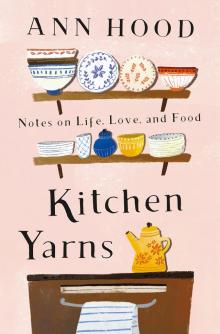 Kitchen Yarns
Kitchen Yarns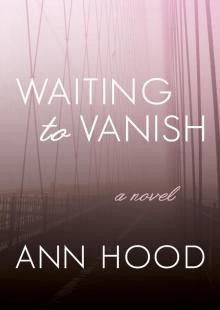 Waiting to Vanish
Waiting to Vanish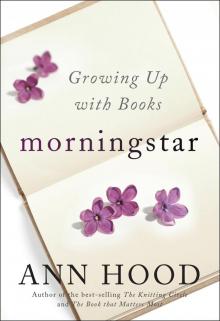 Morningstar
Morningstar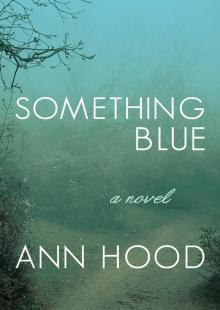 Something Blue
Something Blue Providence Noir
Providence Noir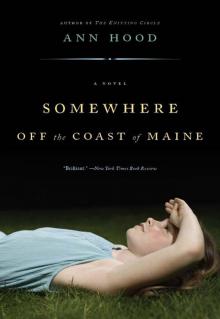 Somewhere Off the Coast of Maine
Somewhere Off the Coast of Maine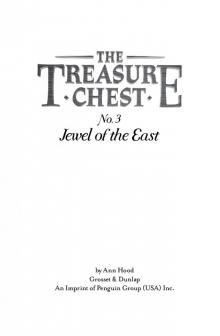 Jewel of the East
Jewel of the East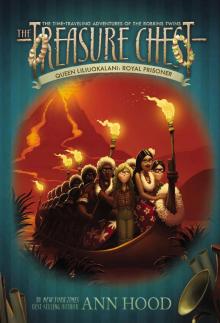 Queen Liliuokalani: Royal Prisoner
Queen Liliuokalani: Royal Prisoner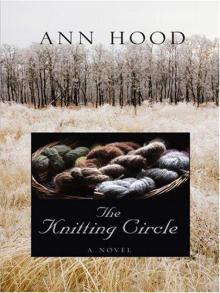 The Knitting Circle
The Knitting Circle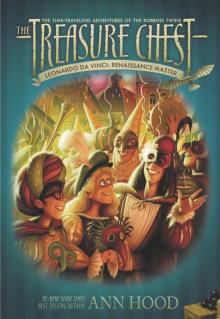 Leonardo da Vinci: Renaissance Master
Leonardo da Vinci: Renaissance Master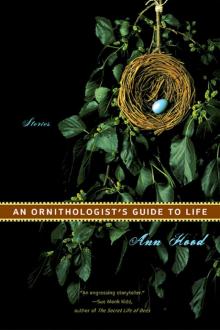 An Ornithologist's Guide to Life
An Ornithologist's Guide to Life The Red Thread
The Red Thread She Loves You (Yeah, Yeah, Yeah)
She Loves You (Yeah, Yeah, Yeah)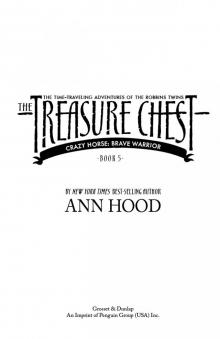 Brave Warrior
Brave Warrior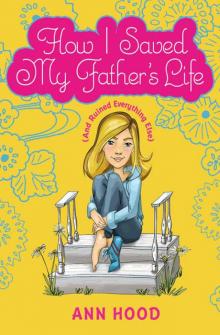 How I Saved My Father's Life (and Ruined Everything Else)
How I Saved My Father's Life (and Ruined Everything Else) An Italian Wife
An Italian Wife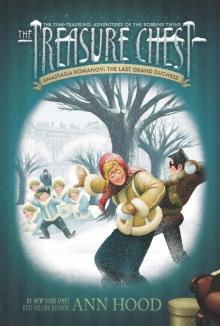 Anastasia Romanov: The Last Grand Duchess #10
Anastasia Romanov: The Last Grand Duchess #10 Prince of Air
Prince of Air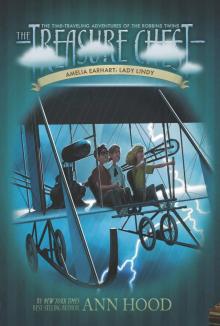 Amelia Earhart: Lady Lindy
Amelia Earhart: Lady Lindy Places to Stay the Night
Places to Stay the Night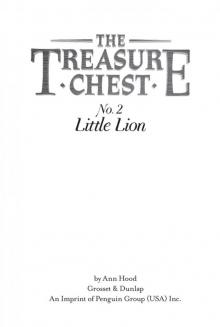 Little Lion
Little Lion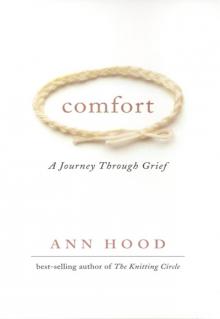 Comfort
Comfort Angel of the Battlefield
Angel of the Battlefield